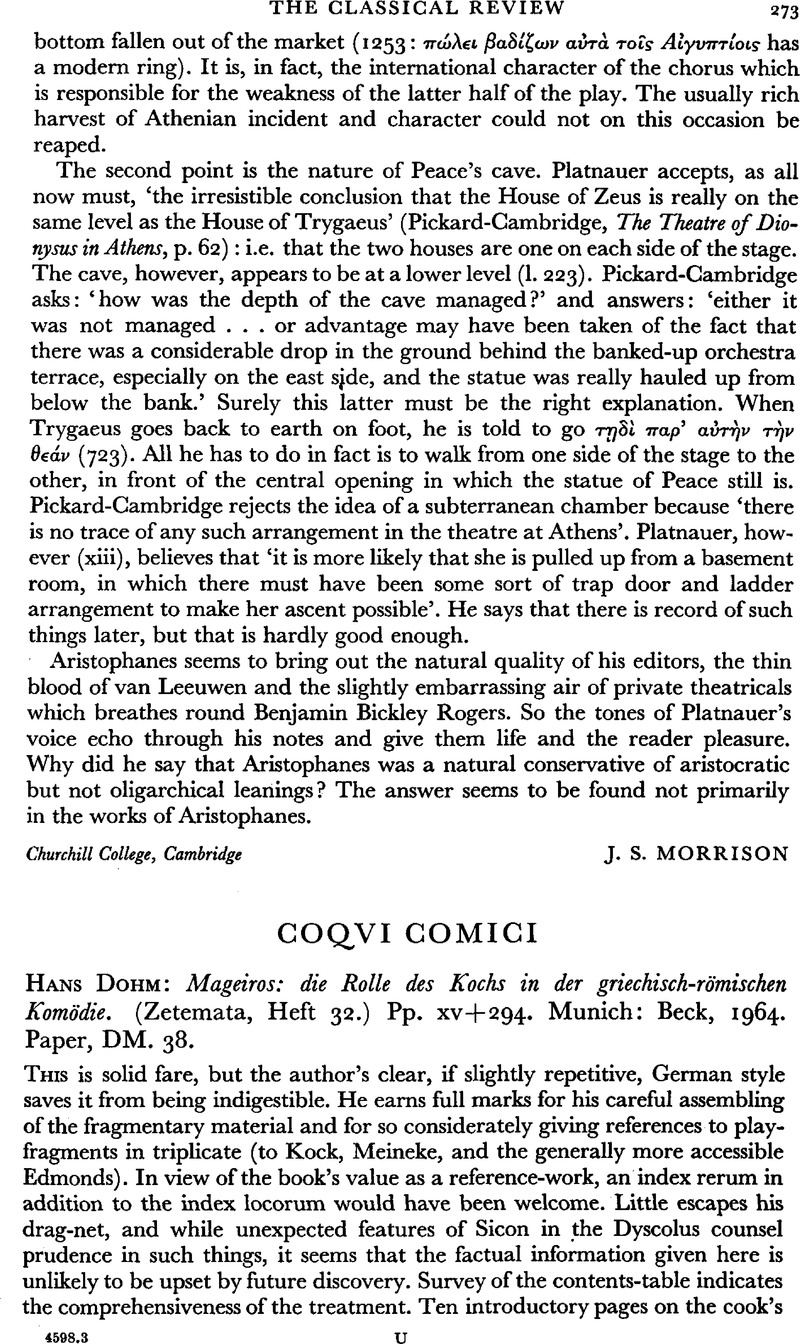No CrossRef data available.
Published online by Cambridge University Press: 27 February 2009

page 274 note 1 For the etymology, see Ernout–Meillet, s.v. An Etruscan origin is not to be discounted, but it seems possible that these words derive from the same root as coqu-us.
page 274 note 2 Neil's note on Eq. 216 might have been cited: the only Aristophanes commentary Dohm lists is van Leeuwen's.
page 275 note 1 Dohm's further threefold subdivision (p. 127) of his category (c) is not significant and amounts to no more than a matter of presentation: ‘progressive refinement’ (p. 128) cannot really be detected.
page 275 note 2 On this, see Dover, K. J., Fifty Years of Classical Scholarship (Oxford, Blackwell, 1954), pp. 119 f. Dohm would have done well to read and ponder the whole of that chapter, with its lively yet commonsense approach to Comedy.Google Scholar
page 276 note 1 Much of Dohm's discussion of this play is aimed at a Göttingen dissertation by A. Theuerkauf (1960) which I have not seen.
page 276 note 2 I have in mind the remarkable passage on cookery and civilization (with satirical overtones) in his Testament of Beauty, Book iii, ll. 46–57 (p. 83, 1929 ed.).